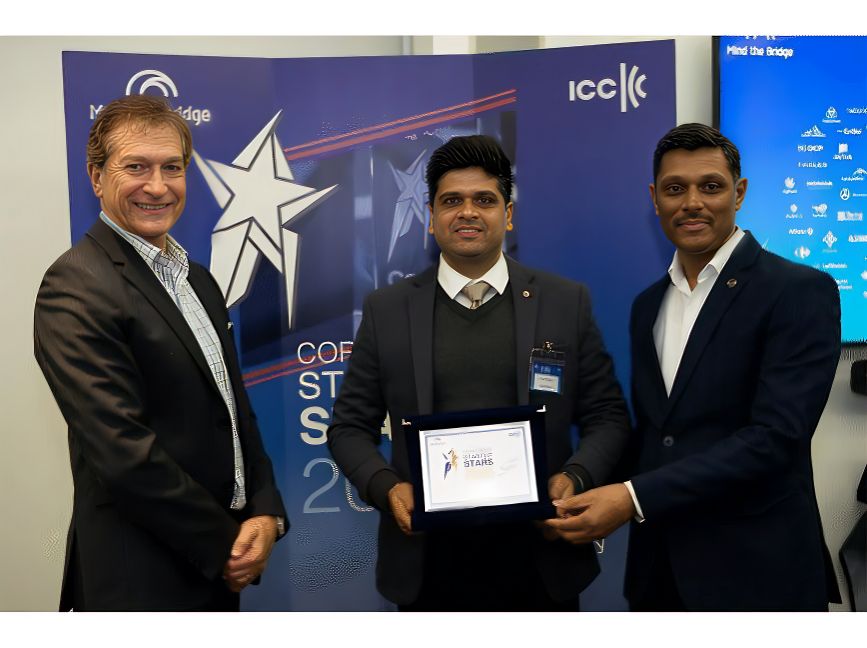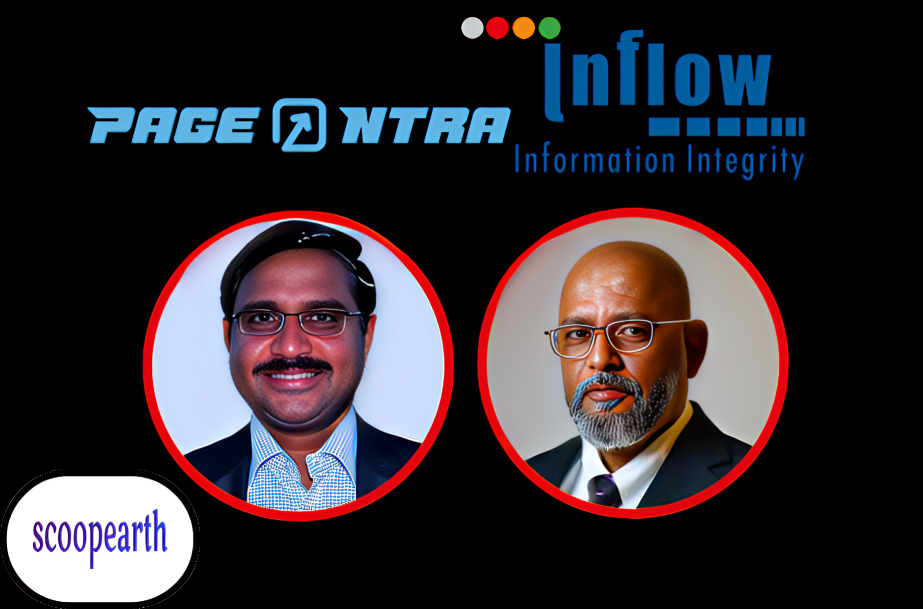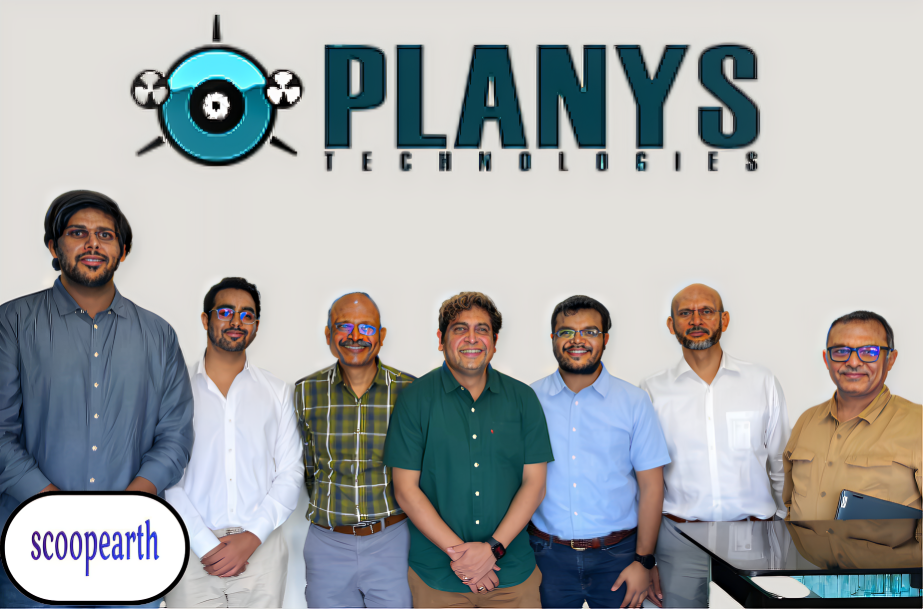Top IT Companies in San Francisco Powering the Global Tech Industry
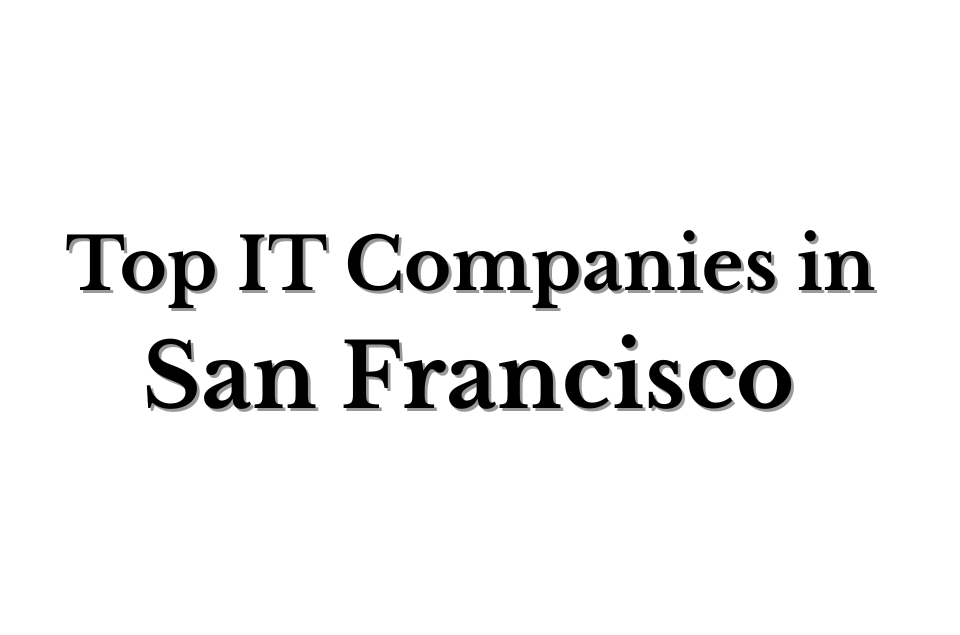
SUMMARY
Introduction:
San Francisco is a tech capital with big ideas and innovation. With its mix of strong infrastructure and endless energy, the city draws talent from everywhere. The city is home to IT companies that build software and tools to shape how the world works and connects.
These tech companies make life easier and tackle hard challenges. The city’s tech scene is booming, as companies are hiring talent and breaking through boundaries. Several companies are securing talent with perks like remote work, wellness programs, and big salaries. This article will discuss some of the top IT companies San Francisco has to offer, leading the world’s tech enterprises.
| Company Name | Founding year | Key Industry/Sector | Revenue (2024) |
| Airbnb | 2008 | Travel & Hospitality | $11.1 billion |
| Cloudflare | 2009 | Cybersecurity & CDN | $1.67 billion |
| Discord | 2015 | Communication & Gaming | $937.6 million |
| Dropbox | 2007 | Cloud Storage | $2.55 billion |
| Gusto | 2011 | HR & Payroll | $735 million |
| Okta | 2009 | Identity Management | $2.26 billion |
| Salesforce | 1999 | CRM Software | $34.9 billion |
| Twilio | 2008 | Cloud Communications | $4.46 billion |
*The list follows alphabetical order.
- Founded: 2008
- Founders: Brian Chesky, Joe Gebbia, Nathan Blecharczyk
- Employees: 57,400+ (2025)
Airbnb

Airbnb started as a simple idea in San Francisco when three friends thought of hosting travellers and rented out rooms in their apartment to make rent money. It has become one of the world’s largest travel sites, offering people available places to stay in more than 220 countries.
Airbnb is an online marketplace that brings people who need accommodation in contact with those who have it. It has made travel more fun and affordable for millions. The platform provides tools for hosts to manage bookings and find hidden gems. Airbnb supports local economies by creating jobs for everyday people. It even offers experiences like city tours.
Key features:
- Easy app for searching and booking homes with photos and reviews.
- Provide tools for hosts to set prices and rules for safe, smooth stays.
- Global safety standards, like verified IDs and 24/7 support.
Cloudflare
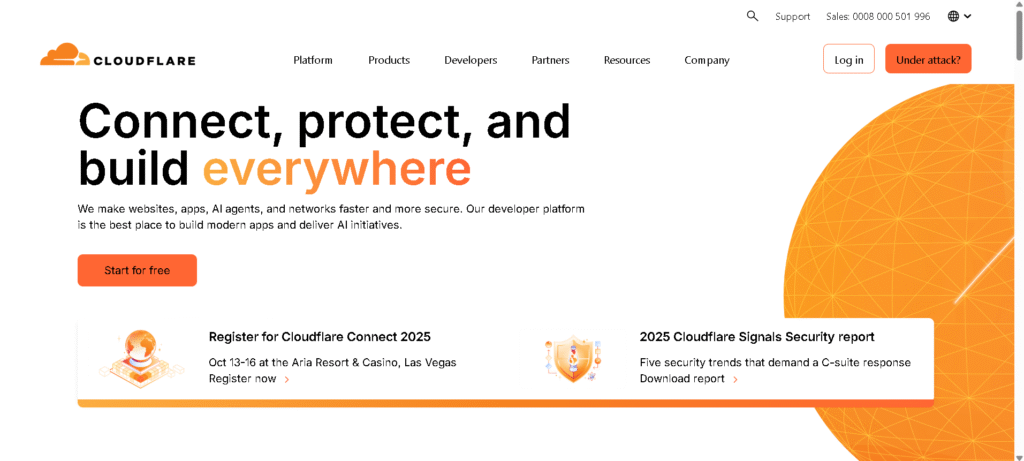
- Founded: 2009
- Founders: Matthew Prince, Lee Holloway, Michelle Zatlyn
- Employees: 4,200+ (2025)
Cloudflare is a connectivity cloud firm providing security and reliability to anything connected to the network. The software uses a massive high-speed network to filter traffic and provide protection against attacks like DDoS. From small bloggers to big banks, millions rely on it to stop bad traffic and speed up loading times. Cloudflare is a key player in keeping data secure without lagging. It delivers content faster through content delivery network services.
Key features:
- Free DDoS protection to stop fake traffic.
- Fast content delivery to load sites quickly anywhere.
- Easy tools for developers to build secure apps.
Discord
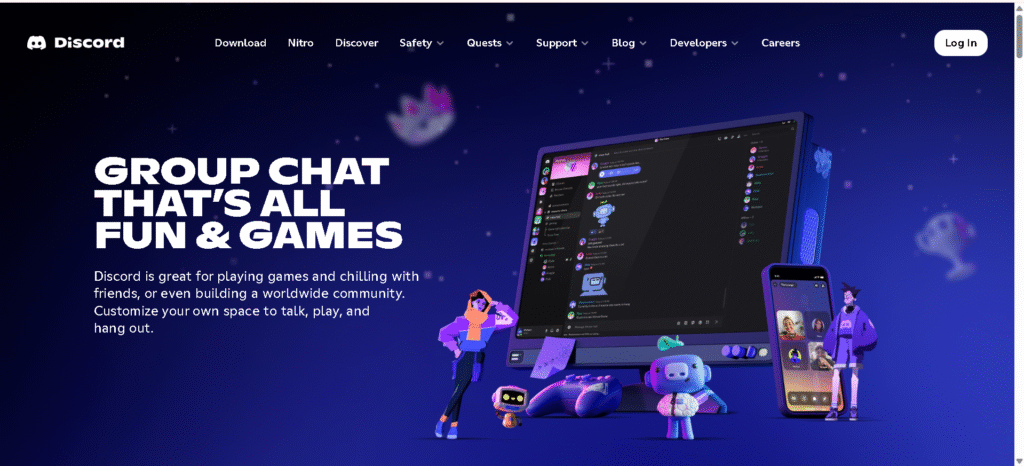
- Founded: 2015
- Founders: Jason Citron, Stanislav Vishnevskiy
- Employees: 900+ (2025)
Discord’s journey began in San Francisco as a chat app for gamers. The firm gained popularity in late 2016 due to its partnerships with e-sports teams and influencers. The COVID-19 pandemic expanded its user base beyond gamers. It quickly became a go-to spot for friends, teams, and communities worldwide.
The platform offers free voice, video, and text chats in private servers. The application has over 150 million users, and it powers everything from online classes to fan groups. The platform even has bots to make talks lively. With increased remote work, Discord became even more important. Discord bridges gaps, letting people connect without hassle.
Key features:
- Clear voice and video for lag-free chats.
- Custom servers with channels for topics like games or hobbies.
- Nitro upgrades for extra fun with custom emojis and bigger file sharing options.
Dropbox
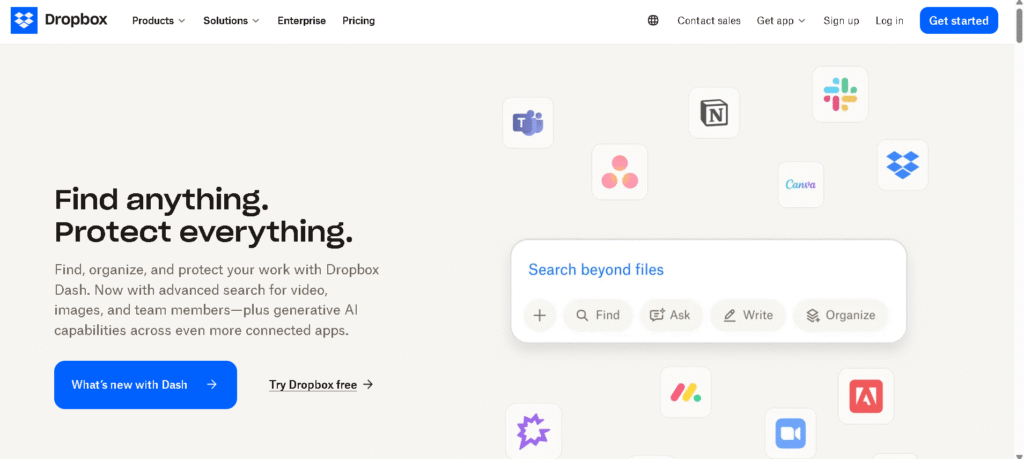
- Founded: 2007
- Founders: Drew Houston, Arash Ferdowsi
- Employees: 2,600+ (2025)
Dropbox is a file hosting service that offers cloud storage, founded by two MIT students in San Francisco. It comes with convenient cloud storage so you can save photos, docs, and videos for any device and share them securely across all your devices with an internet connection. Millions of users use Dropbox to sync files without emails or USBs.
The company provides an online storage with automatic backup and the ability to share large files via link. Dropbox makes it easy to store and share files online. It focuses on privacy with strong encryption, helping teams work together from anywhere. As files grow huge, Dropbox keeps innovating and powering creativity across the globe.
Key features:
- Auto-sync across phones, laptops, and tablets.
- Secure sharing links with passwords and expiration dates.
- Tools for quick notes and team feedback.
Gusto
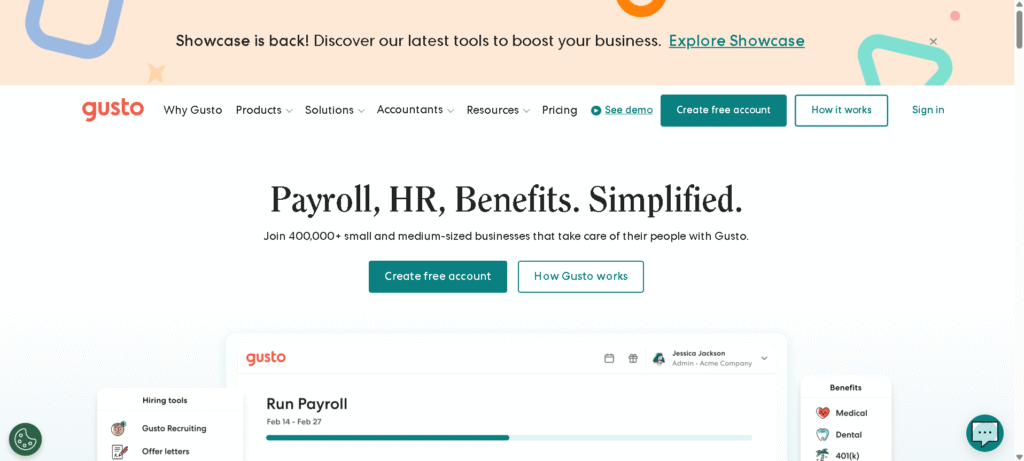
- Founded: 2011
- Founders: Josh Reeves, Tomer London, Edward Kim
- Employees: 2,500+ (2025)
Gusto makes HR simple for small businesses by developing software to manage payroll, benefits, and taxes with just a few clicks. The firm has processed payroll for over 400,000 companies on time. The app tracks time, runs reports, and even helps the business with hiring.
Gusto is growing and improving by listening to user feedback. The platform recently added features like instant pay. This company shows San Francisco’s knack for tech that eases real-life work pains. The firm also offers international payroll and hiring services through Gusto Global.
Key features:
- Automated payroll with direct deposits and tax filings.
- Easy benefits setup for health insurance and retirement.
- Mobile app for employees to view pay and request time off.
Okta
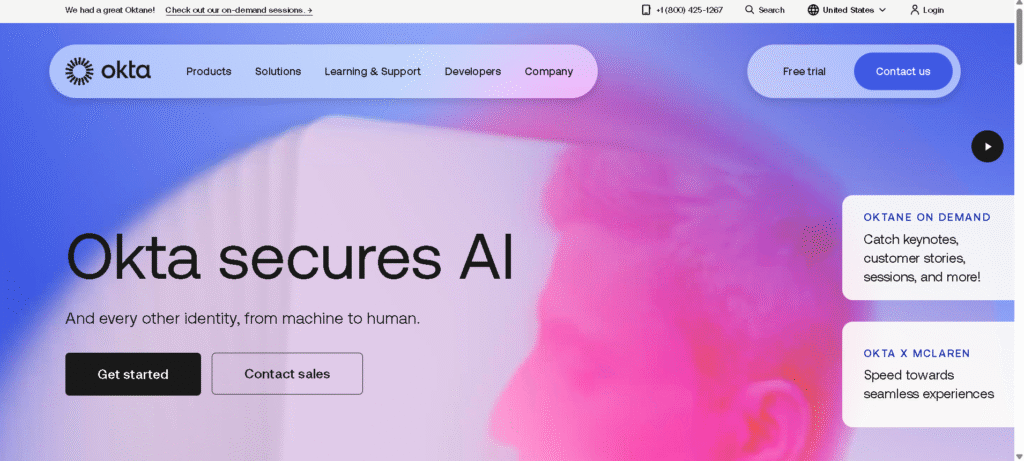
- Founded: 2009
- Founders: Todd McKinnon, Frederic Kerrest
- Employees: 5,900+ (2025)
Okta, headquartered in San Francisco, is a cloud-based service for identity and access management. It helps organizations with secure login by letting users sign into apps with one password, using multi-factor authentication to keep hackers out. Okta’s tools adapt in real-time, blocking cyber threats before they occur.
It serves over 18,000 clients worldwide. However, the company faced a breach in late 2023 when an attacker gained access to Okta’s customer support and HTTP Archive files. These tokens can be used to impersonate users by easily bypassing MFA.
The incident caused a loss to Okta’s image and customer base. The company overcame this through initiatives like secure identity commitment. The firm continues to refine its security products and practices.
Key features:
- Adaptive MFA that checks location and device for extra safety.
- API tools for developers to build secure logins fast.
Salesforce
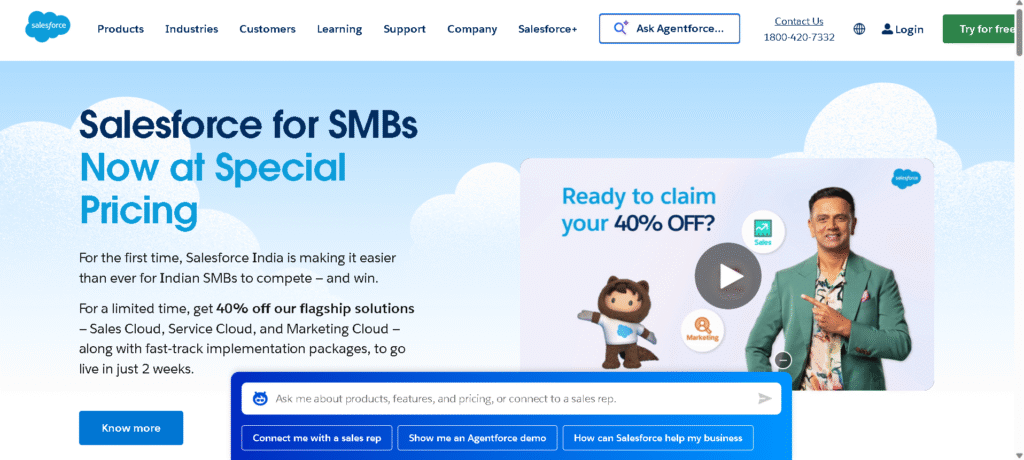
- Founded: 1999
- Founders: Marc Benioff, Parker Harris
- Employees: 76,400+ (2025)
Salesforce started the cloud revolution in San Francisco, offering CRM software that tracks customer chats and sales. Now, it helps millions of businesses personalize service with AI insights and connect with customers through its online platform, integrating AI, CRM, and data.
It connects teams in real time, boosting sales and interactions. The company offers tools like Einstein AI, which predict needs and automate tasks. The firm uses AI to help businesses with personalized customer experience. Salesforce has grown into a $238 billion giant, reshaping how companies engage with customers.
Key features:
- AI-powered dashboards for sales forecasts and leads.
- Custom apps built without code for quick changes.
- Trailhead learning platform for free skill-building.
Twilio
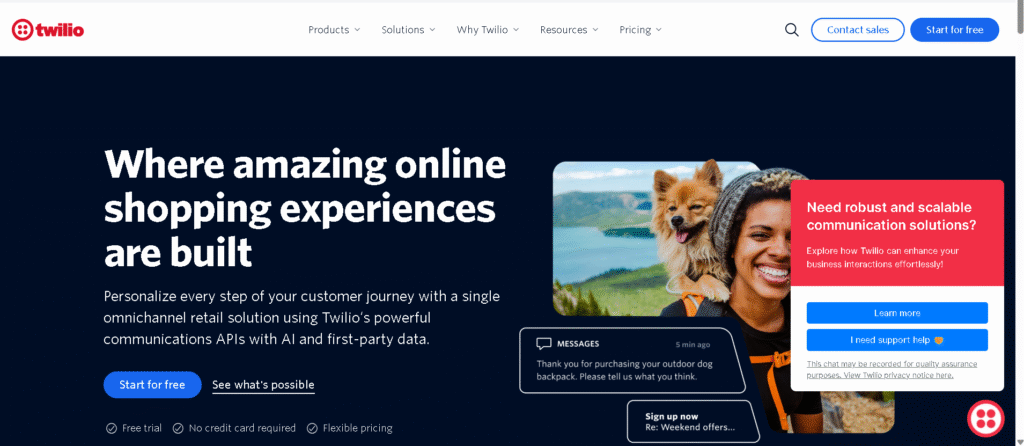
- Founded: 2008
- Founders: Jeff Lawson, Evan Cooke, John Wolthuis
- Employees: 5,000+ (2025)
Twilio, a San Francisco-based cloud communication company, provides a customer engagement platform to help businesses with personalized customer interactions. It allows developers to add APIs for phone calls, texts, and videos to apps through programmable tools easily.
Rather than building a whole communication infrastructure from scratch, companies use Twilio’s API directly in their applications. The firm helps these companies in handling billions of messages daily without building a backend themselves. Companies only pay for what they use, which keeps costs low.
Key features:
- APIs for SMS, voice, and email in one platform.
- Flex tool for building custom contact centers.
- Verify service for secure logins via text.
Conclusion:
The world’s tech industry is transforming through these San Francisco IT companies. These companies are fixing real problems with intelligent and innovative tools. They generate jobs, spur innovation, and connect people globally. They’ve inspired companies everywhere by tackling issues like privacy. They face challenges like high costs, but they also lead in innovation. The article was about the leading IT firms in San Francisco, which are driving global technology.
FAQs:
Why is San Francisco known as a global tech hub?
San Francisco is home to top tech giants, startups, and venture capital firms that drive global innovation.
Which are some of the top IT companies based in San Francisco?
Leading names include Salesforce, Dropbox, and Discord.
What makes IT companies in San Francisco successful?
Access to top talent, strong investor networks, and a culture of innovation make them thrive.
How do San Francisco IT companies impact the global tech industry?
They set global trends in software, AI, cloud computing, and digital transformation.
Are startups in San Francisco competing with big IT firms?
Yes, many startups innovate rapidly and often collaborate or compete with established tech leaders.
What roles are most in demand in San Francisco’s IT sector?
Software engineers, data scientists, cloud architects, and cybersecurity experts are highly sought after.
How do San Francisco IT companies attract global talent?
They offer competitive pay, flexible work environments, and cutting-edge technology projects.
What technologies are shaping San Francisco’s IT scene today?
Artificial intelligence, cloud computing, blockchain, and machine learning dominate the scene.
How do IT companies in San Francisco support startups?
Through funding, mentorship, accelerators, and tech infrastructure.
What is the future outlook for San Francisco’s IT industry?
The city is expected to remain a global innovation hub, leading advancements in AI and digital solutions.
Note: We at scoopearth take our ethics very seriously. More information about it can be found here.









